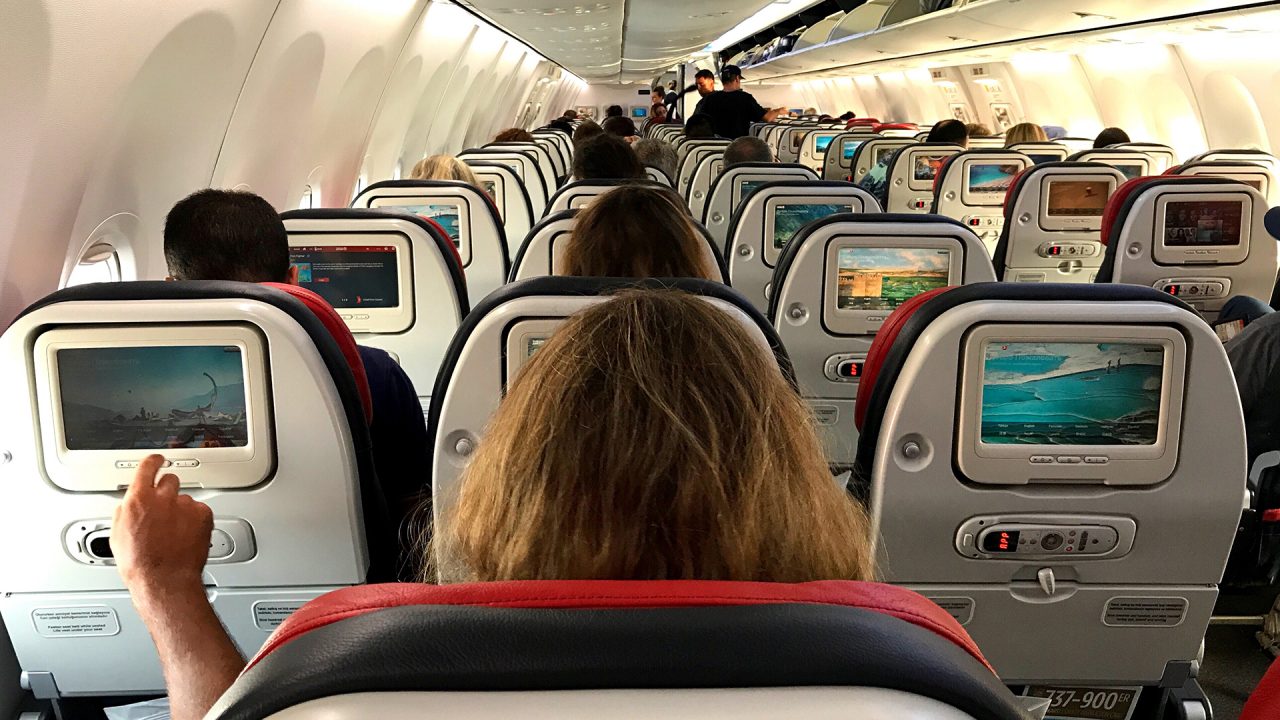
A US study has suggested leaving aircraft middle seats empty could reduce potential exposure to Covid-19 infection by between 23% and 57% compared with a full aircraft if passengers are not wearing masks.
The study by the US Centers for Disease Control and Prevention (CDC) and Kansas State University concluded: “Research suggests seating proximity on aircraft is associated with increased risk of infection [with Covid-19].”
The study modelled exposure to aerosol particles similar to the Covid-19 virus in “full occupancy and vacant middle seat scenarios”.
It found: “Relative exposure in vacant middle seat scenarios was reduced by 23% to 57% depending on the modelling approach.
“These data suggest that increasing physical distance between passengers and lowering passenger density could help reduce potential Covid-19 exposures during air travel.”
The CDC reported the study in its Morbidity and Mortality Weekly Report of April 14.
The study analysed data from 2017 research into the in-flight transmission of flu which used techniques similar to those used to approximate airborne transmission of Covid-19.
However, the impact of mask wearing was not measured as the original study took place before the Covid-19 pandemic and the study measured potential exposure to, not transmission of, virus particles.
Most studies up to now have suggested the high efficient particle air (HEPA) filters on modern aircraft remove airborne virus particles, with safety enhanced by wearing face masks.
The CDC noted: “Aircraft cabin ventilation systems are designed to deliver clean air [and] when these standards are adhered to most virus particles are removed within several seat rows from a source on an aircraft and the recirculated portion of the air passed through HEPA filters.”
However, it reported: “As aircraft ventilation removes airborne transmission, it also causes some turbulent dispersion. This spreading effect of aerosols is larger than transient flows created by passenger or crew movement [inflight].”
The CDC concluded: “Aircraft hold large numbers of persons in close proximity for long periods, which can increase the risk of transmission of infectious disease.”
“This laboratory-based model predicts a 23% to 57% reduction in exposure to viable virus particles when middle seats on an airline are kept vacant.
“This range is comparable to that reported in another study that [showed] keeping middle seats vacant reduced the risk for airborne infection by 45%.
“A recent investigation of [Covid-19] transmission on an international flight found that seating proximity was strongly associated with infection risk: 75% of infected passengers were seated within two rows of the symptomatic passenger.”
It added: “A case study of Covid-19 transmission on a flight with mandated mask wearing suggests that some virus aerosol is emitted from an infectious masked passenger, such that distancing could still be useful.
“Combining the effects of masking and distancing is more protective than either by itself. Physical distancing of aircraft passengers could provide additional reductions in exposure risk.”
Iata reacted cautiously to the CDC report. In a statement, it said: “The safety of passengers and crew is always our top priority. We are carefully reviewing the CDC study.
“However, it’s important to note this laboratory study did not consider the significant risk-reduction impacts of wearing facemasks by passengers and cabin staff.
“The wearing of masks on flights has been airline policy for several months. Many governments have made it a legal requirement, including in the US, where it has been a federal mandate from January 2021.”
It also noted: “The CDC study addresses only exposure and not transmission.”
Iata added: “Scientific studies that have taken into consideration mask-wearing have concluded the risk of onboard transmission is very low.
“There have not been large numbers of confirmed or suspected cases of onboard transmission reported at any stage of the pandemic and almost all those that were occurred without the wearing of masks on-board.”
Current CDC guidelines recommend against travel for people who have not been vaccinated against Covid-19.







